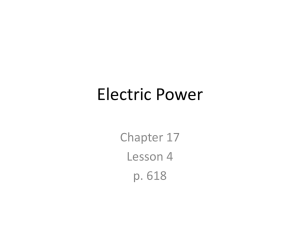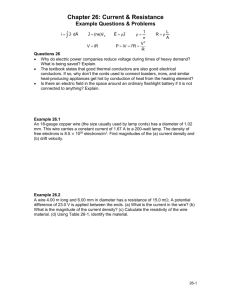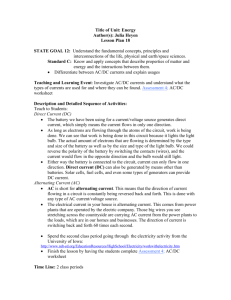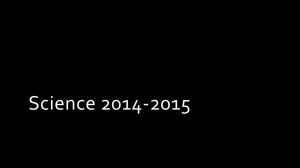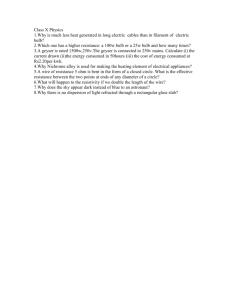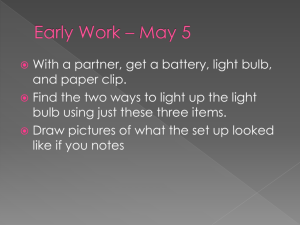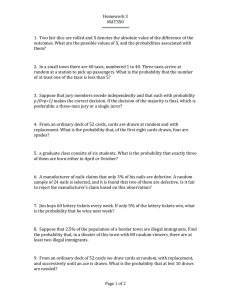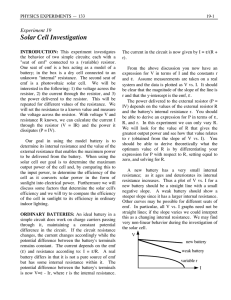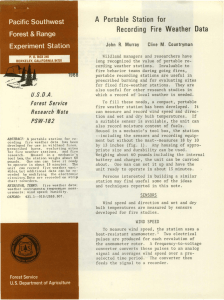Basic Rules of Probability
advertisement
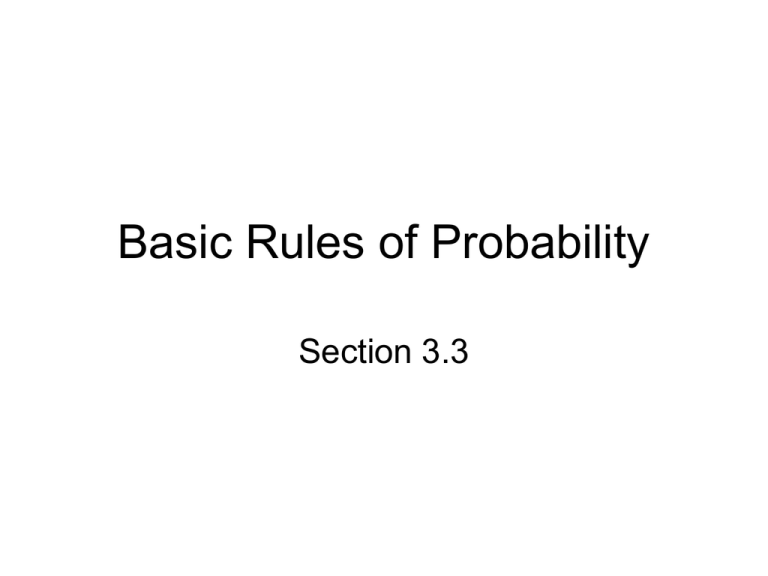
Basic Rules of Probability Section 3.3 The Axioms If E is an event and is a subset of S, the sample space, then the following are true: 1. 0 ≤ P(E) ≤1 The probability of an event E is between 0 and 1 inclusive. 2. P() = 0 The probability of an empty set is zero. Consequence: IF P(A ∩ B) = 0 then A ∩ B = which implies A and B are mutually exclusive. 3. P(S)=1 The probability of the sample space is 1. More Axioms 4. The rule for unions in general is P(A U B) = P(A) + P(B) – P(A ∩ B) 5. If A and B are mutually exclusive then P(A U B) = P(A) + P(B). 6.The rule for complimentary events is P(E’) = 1 – P(E). Examples • Let E be the event of tossing two dice such that the sum of the face is even. Let F be the event that the sum of the faces is greater than 9. • What is the probability of the sum of the faces being even and greater than 9. • What we are looking for is P(E ∩ F). The only rolls that correspond to that event are (6,4), (4,6), (5,5), (6,6). • Thus P(E ∩ F)=4/36=1/9. • What is the probability of the sum being even or greater than 9. • Want to compute P(E U F). • USE AN AXIOM P(E U F)=P(E)+P(F)-P(E ∩ F)=1/2+1/61/9=5/9 #61 p.155 • Of all flashlights in a large shipment, 15% have a defective bulb, 10% have a defective battery, and 5% have both defects. If you purchase a flashlight from the shipment what are the probabilities of the following: • A defective light bulb or a defective battery, • A good bulb or a good battery, • A good bulb and a good battery. ANSWERS • • • • • • • • • • L be the event of having a bad light bulb. B be the vent of having a bad battery. L’ is the event of having a good light bulb. B’ is the event of having a good battery. P(L)=0.15, P(B)=0.10, P(L ∩ B)=0.05 The probability of having a bad bulb or bad battery is P(L U B)=P(L)+P(B)- P(L ∩ B)= 0.15+0.10-0.05=0.20=20%. The probability of having a good bulb or good battery is P(L’ U B’). Using de’Morgan’s law L’ U B’=(L ∩ B)’ Thus P(L’ U B’) = P((L ∩ B)’)=1-P(L ∩ B)=1-0.05 = 0.95 = 95% The last part where we have a good bulb and good battery is P(L’∩B’)=P((L U B)’)=1-P(L U B)=1-.2=.8=80%
